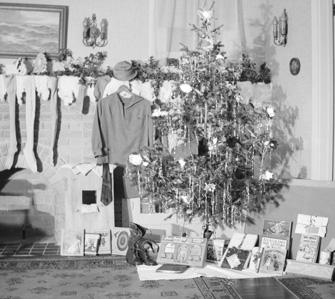As the villages of Oak Park and River Forest prepared for the fourth Christmas since the 1929 stock market crash, a ray of hope pierced the gloom of the Great Depression.
A front page editorial in the Oak Leaves noted that local merchants confidently predicted “a happier Christmas than any other in four years,” as local businesses “felt new life or reason to hope for better times.”
Not just locally, but throughout the country business was picking up and people felt more secure. Stores were stocked with “new and amazing” goods. Food stores offered products, domestic and imported, “that Roman emperors could not have imagined.”
The prevailing mood, according to the Oak Leaves, was that “better times are on the way.”
Elsewhere in the same issue the newspaper’s editors explained the source of all this hope in what were still very hard times. One reason was President Roosevelt’s “reversing the psychology of situations,” such as the failing banking system, by closing all banks and then reopening them with federally insured deposits up to $2,500.
 As for jobs, or the lack of them, “Mr. Roosevelt has again reversed the situation” with federal job programs that already employed thousands and promised to “give everyone who wants one a job.” The editorial authors admitted that at the moment “there are just so many jobs and just so many lucky ones will get on the Federal payroll.” But they expected that “the number of jobs will increase indefinitely until everyone is taken care of.”
As for jobs, or the lack of them, “Mr. Roosevelt has again reversed the situation” with federal job programs that already employed thousands and promised to “give everyone who wants one a job.” The editorial authors admitted that at the moment “there are just so many jobs and just so many lucky ones will get on the Federal payroll.” But they expected that “the number of jobs will increase indefinitely until everyone is taken care of.”
The history of the New Deal and the Great Depression shows that the peak unemployment of 12 million in 1933 did decline but still stood at 9 million six years later on the eve of World War II.
The Oak Leaves editors’ optimistic approval of Roosevelt’s policies in that first year of the New Deal is all the more striking considering the fact that staunchly Republican Oak Park and River Forest voted overwhelmingly for Herbert Hoover in the 1932 Presidential election. Indeed, the general feeling in the villages that “better times are on the way” echoed Hoover’s much-ridiculed prediction that “prosperity is just around the corner.”
Apparently FDR was better at selling hope in hard times.
